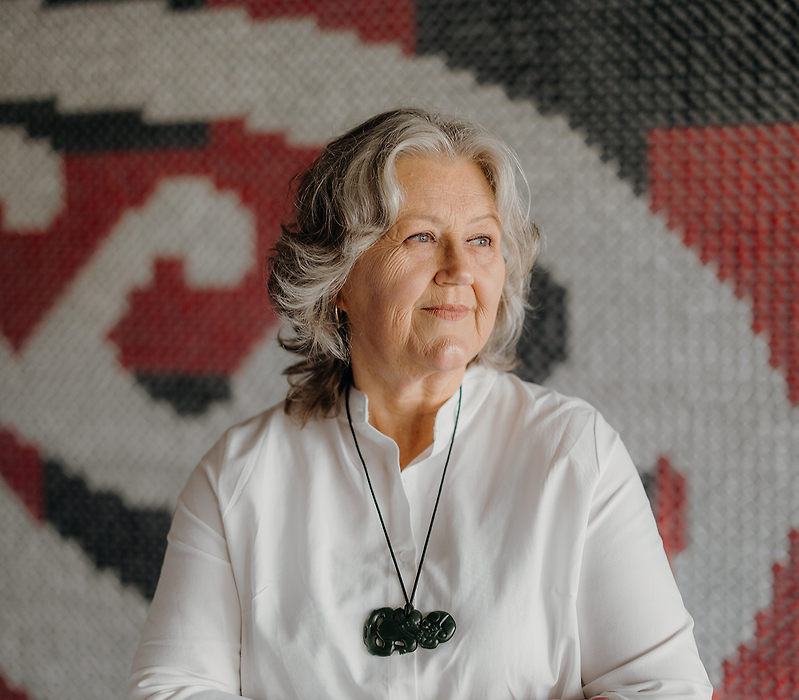Born and raised in Southland into a roll-your-sleeves-up type of working class whānau, Tracey Wright-Tawha (Kāi Tahu) was never destined to watch from the sidelines. Instead, she’s made it her life’s mission to embody the values of resilience, resourcefulness and service that were instilled in her from an early age — a life gift, role modelled by her exceptional parents.
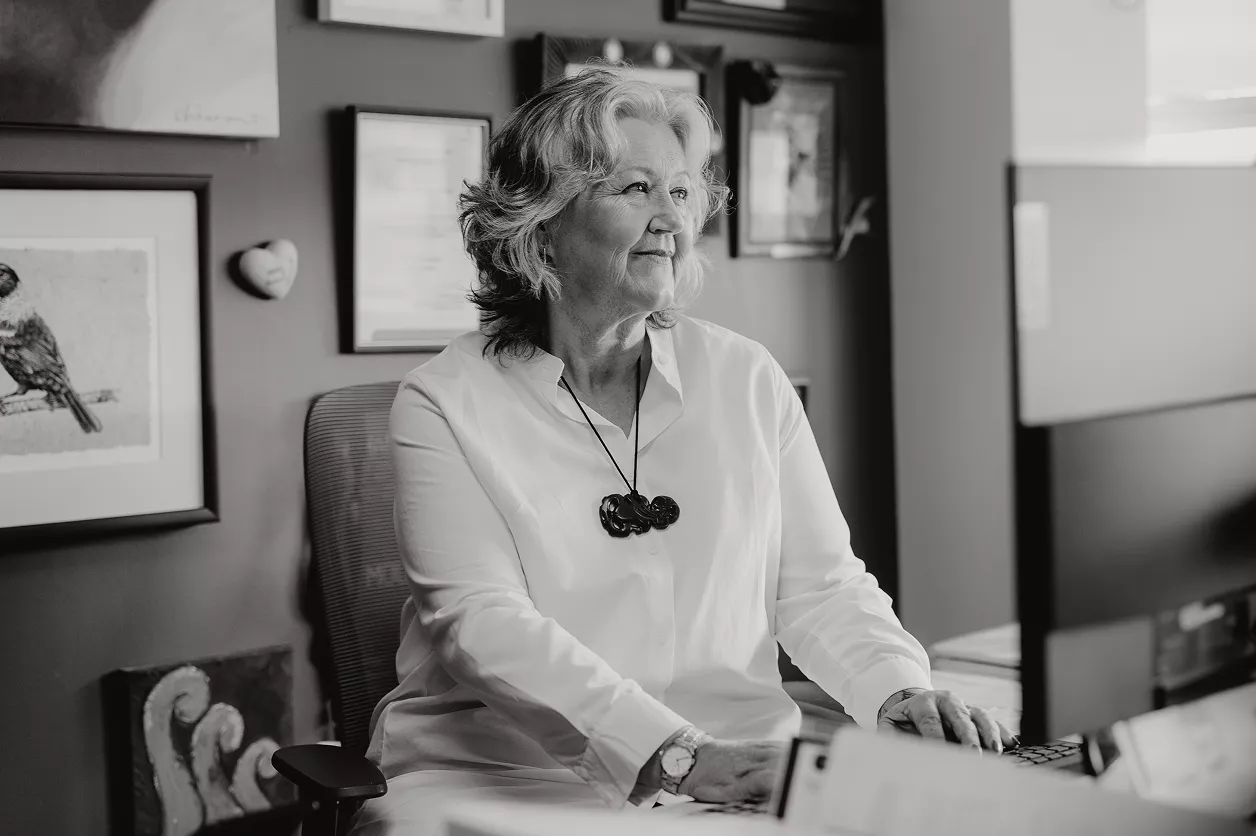
“My grandparents ran the first Te Anau grocery store: they sawed the wood, they planed the wood, they built the shop, they baked the bread, they sold the goodies. So I've always had a strong personal work ethic,” says Tracey.
“I come from very nurturing parents. We were never rich in monetary terms, but we were rich in the sense that we were never hungry, and we learned to read really young — my mother read to us all the time and my father always had an amazing garden. He was a hunter-gatherer. I think as a child, I learned a lot about number 8 wire thinking, self-resilience, and personal capacity to do things.”
There was never any questioning Tracey’s career path — her love of people and place meant she always knew she wanted to make change in her local community. “I did a decade at the Department of Social Welfare, and all the time there was something missing,” she says. “So, 25 years ago in September, I decided to set up a trust: Ngā Kete Mātauranga Pounamu. Ngā kete meaning ‘the baskets’, pounamu signifying the Deep South, and mātauranga is education, enlightenment, access to information.”
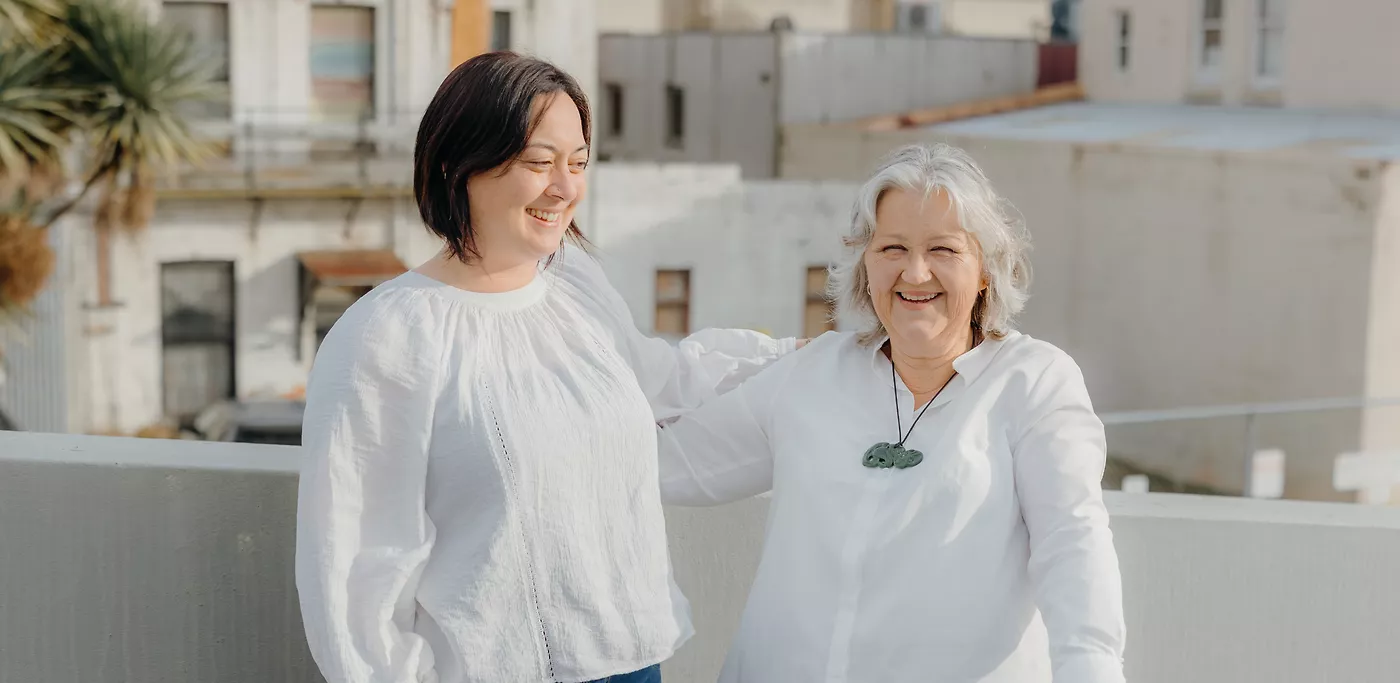
Photography by Emily Chalk
Ngā Kete — as Tracey casually calls it — had humble beginnings. “Because there was no money yet, we were gifted the stationery cupboard at Te Puni Kōkiri for an office,” she recalls candidly. “Once the first contract kicked in, we then got our first little office in Invercargill, and it snowballed from there.”
“I set out in a really robust way to cut a track forward around health and wellbeing for whānau Māori, but inclusive of everybody,” Tracey says. She received the mandate from her rūnaka, Ōraka-Aparima Rūnaka, to fulfil the aspirations of her moemoeā (vision) for Ngā Kete. “What’s good for Māori is usually quite good for everybody.”
Today, the trust undoubtedly lives up to the mana of its name. Ngā Kete is a kaupapa Māori regional health and social services agency that employs 122 staff in five offices across Dunedin and Invercargill, as well as two general practices. Their service offerings are extensive: stop smoking, addiction counselling, respite care, detoxification, mental health, youth residential care, kaumātua support, disability access and advocacy, restorative justice, financial capability, plus many more.
“We are the champions of personal empowerment and enablement,” says Tracey with pride. “We are a living, breathing connection to our local community.”
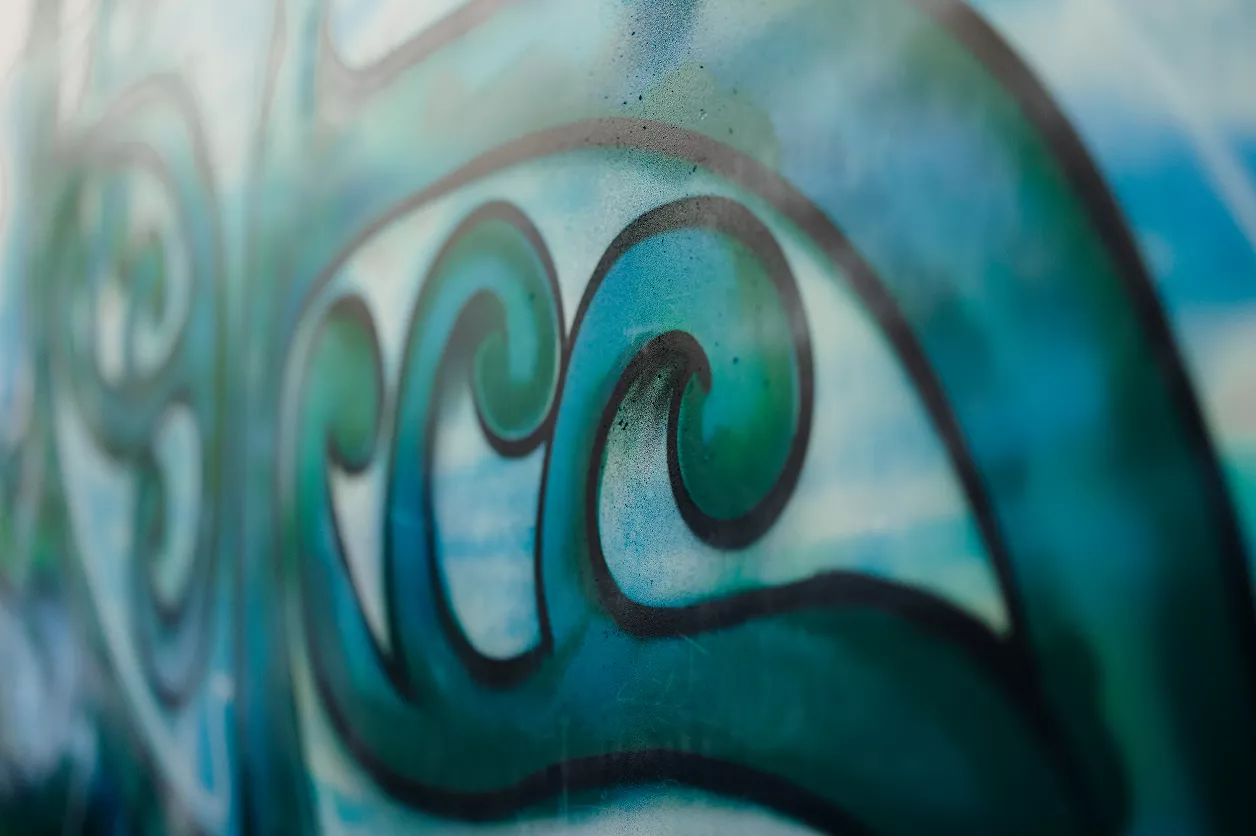
Not everyone was supportive of Ngā Kete in the early days, but Tracey used their criticism as fuel. “Those doubters created a fire for me. I had an internal mantra of ‘Rise above.’ Let the merit of the work speak for itself,” she says. “We get criticised at Ngā Kete all the time: ‘You're too this, you're too that.’ But we've learned that evidence is our best armour, so we are very robust in that space.”
Naysayers be damned, the evidence clearly speaks for itself. “In any one year, we do about 130,000 to 150,000 interventions. On top of that, we run about 120 groups — everything from Gestalt therapy to personal drama workshops, peer-led maintenance and relapse prevention groups,” explains Tracey. Ngā Kete also has 6665 enrolled patients across their two general practices. “That’s a significant number of patients for a charity like us,” she adds.
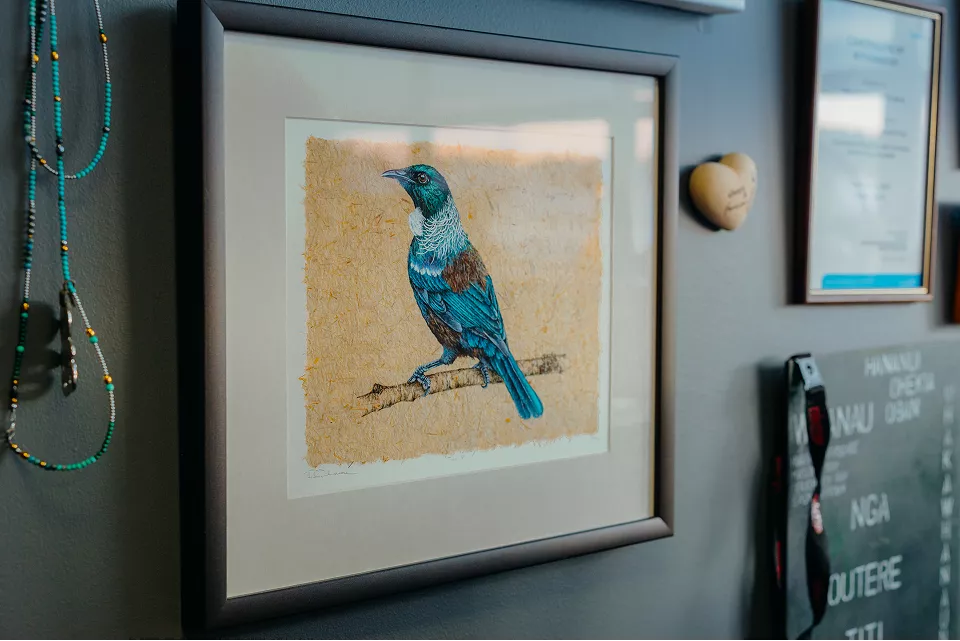
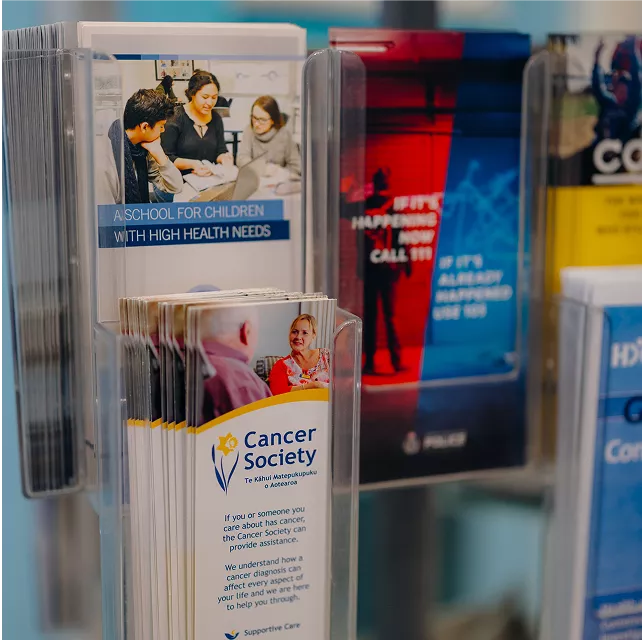
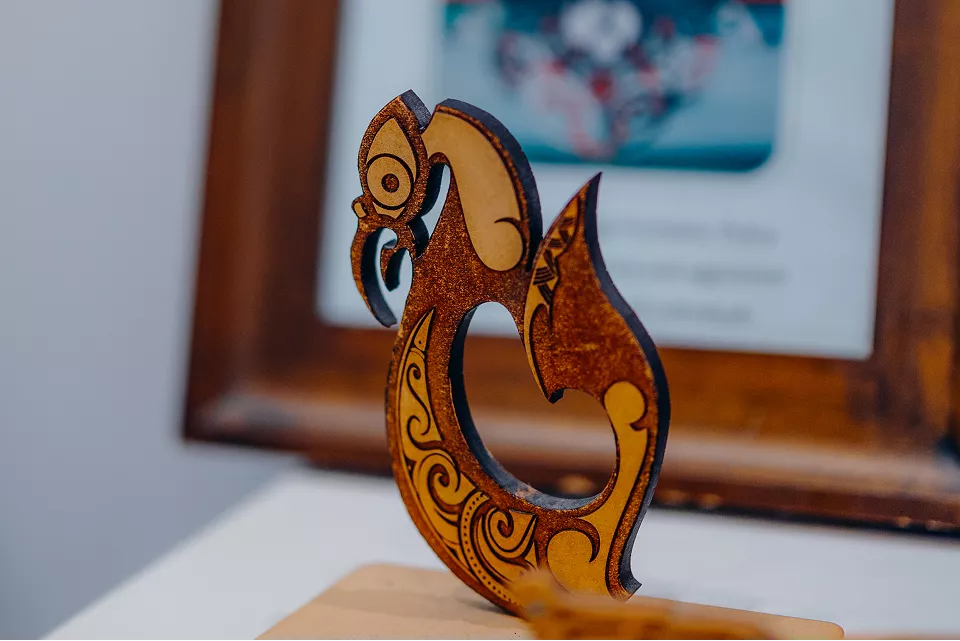
Ngā Kete has been driven by whānau voice since its inception, and the community continues to shape the services it offers. An example of that is rongoā and mirimiri practices. The community was asking, and Tracey wanted to give it to them, but how?
“We worked with the Ministry of Health to gain our first rongoā contract but there wasn’t recognition of rongoā in other areas, like ACC rehabilitation — acupuncture was an option but not our own indigenous practice. So, we jumped on board an initiative championed by the University of Otago, under a wonderful woman, Professor Emma Wyeth, and started meeting with ACC. It took about four years, and now mirimiri is an option for people needing rehabilitation. I’m really, really proud of that.”
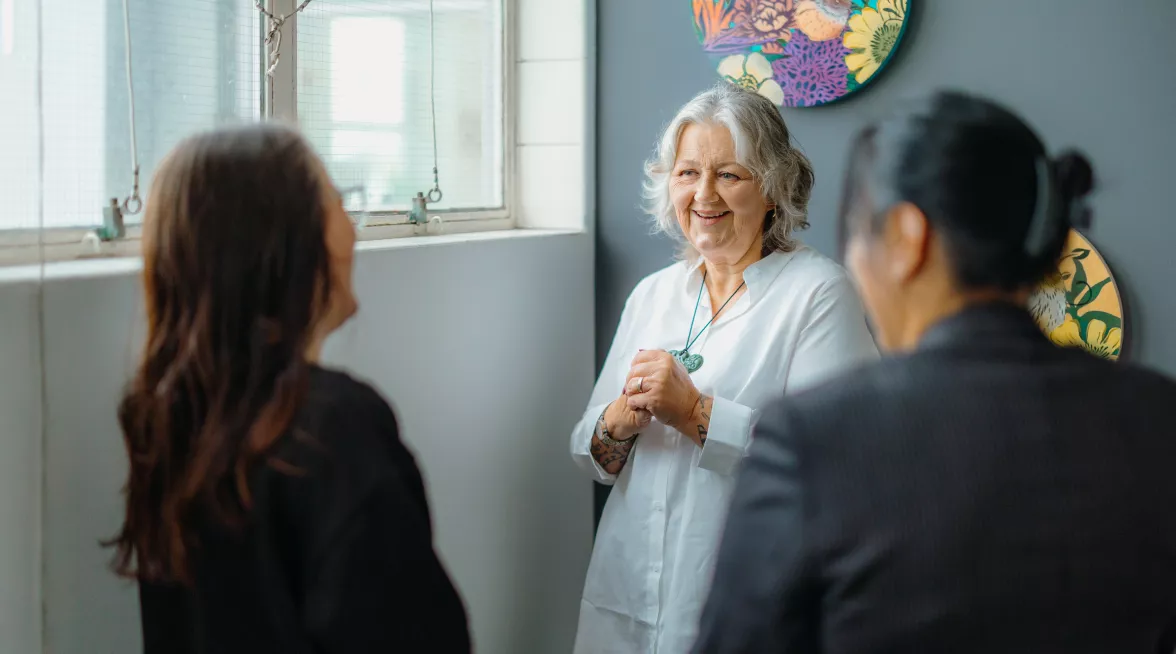
The resilience Tracey emulated from her whānau growing up has set her in good stead to navigate health reforms and policy changes that have inevitably come with shifting political climates. “I think what we've learned to do over 25 years is to ride the wave,” says Tracey. “It's like paisley print; everything comes back into fashion sooner or later. And every little bit of gain we can make at each turn of the tide, we go, ‘Alright, we’ve still got that bit.’”
As for where she draws her strength when times are tough, Tracey credits the wisdom of her elders. “I listen a lot to our kaumātua and they offer absolute gemstones if you want to take the time to think about the message that they're giving you,” she says. “Like one kaumātua, she used to say to me, ‘Every morning I get up and put sugar in the water bowl and take it out and feed the tūī who come into my tree. And that just gets me off on the right foot every day.’”
“I'm going, ‘There's a metaphor and a message in here somewhere!’” she recalls with a laugh. “But what I do get from that now is that life can be so busy and so demanding that you must take time to do the simple things that bring you joy and allow the solution to come to the surface.”
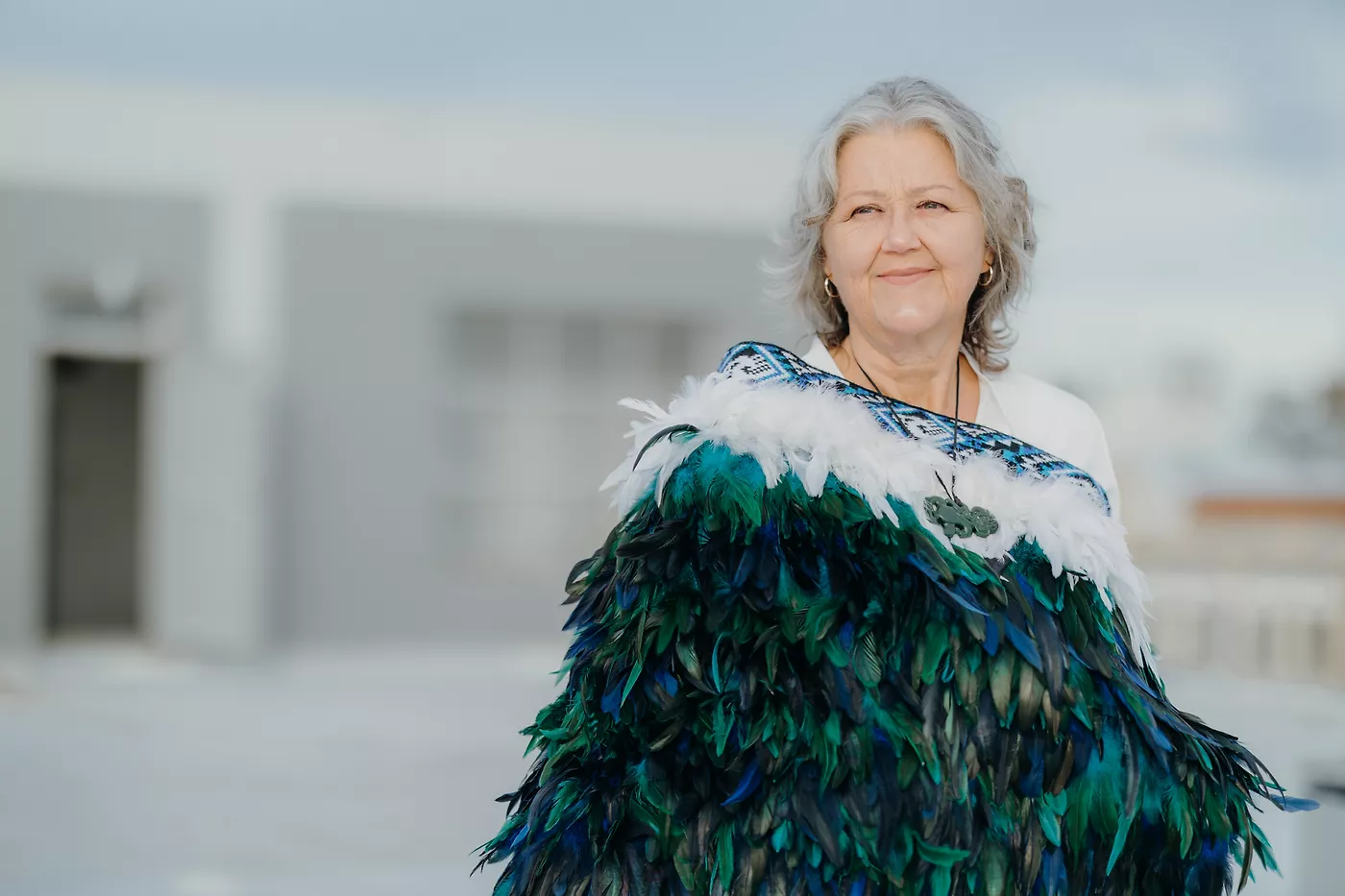
In 2021, Tracey was recognised in the Queen’s Birthday Honours, becoming a Member of the New Zealand Order of Merit for services to health and Māori. She didn’t love being in the spotlight but her reason for accepting the Order was far greater than herself. “I'm proud for my mum and dad because it was the recognition they deserved that they were great parents. They did the very best they could — they had dreams and aspirations for us,” reflects Tracey, with a sense of admiration.
While she could have considered the grand halls of Wellington or set her sights on being a CEO elsewhere, Tracey has no regrets about remaining where she was raised. “I built my career around wanting to be a servant to the people, but doing it in my backyard. Mainly because I love whakapapa and I love understanding my ancestral roots. And really, for the archivers of the future, I hope that they look back 100 years from now and say, ‘Well, she had a couple of good ideas. She gave it a go.’”
That she has. After all, why go elsewhere when there’s no place like home?
Over these 25 years, we've developed some key relationships with providers. With kaupapa Māori thinking, there's nothing transactional about it — it's always relationship first.”
